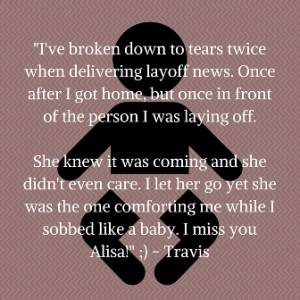In 2012, direct spend on conventions in the U.S. was $280 billion. A presence at these events is a requirement for companies trying to make it in their industry. Attendees travel, in droves, to host cities that can can accommodate the influx of visitors.
 Technology and software companies do not mess around with conventions. They are a game of one-upmanship between competitors.
Technology and software companies do not mess around with conventions. They are a game of one-upmanship between competitors.
Hosts spend small fortunes to bask in the spotlight to unveil new products, make headlines, announce partnerships, and bestow awards that are the corporate equivalent of high school yearbook superlatives followed by an often awkward photo op.
Exhibitors bombard attendees with information and logo’d trinkets as they follow their planned agendas. Days often extend into hospitality suites, parties, and VIP events where sellers and buyers network over cocktails.
Your time is limited. If you’re not careful, you will become occupied with time-wasting conversations. There are certain attendees you want to avoid. Here are a few examples:
 “The Trick-or-Treater” – They walk the exhibit hall looking for handouts. They might ask what you do, but they don’t care. Some ask for the SWAG directly. They’ve either stalked your booth or someone told them what you have. A quality tote is a great handout. Shove everything they have in it and let them walk away.
“The Trick-or-Treater” – They walk the exhibit hall looking for handouts. They might ask what you do, but they don’t care. Some ask for the SWAG directly. They’ve either stalked your booth or someone told them what you have. A quality tote is a great handout. Shove everything they have in it and let them walk away.
“The Faux Prospect” – They have been with their company a while and they are in the early stages of a big project. The attendee is there to gather information, but potential work is a long way down the road. It doesn’t hurt to foster a relationship with these attendees, but do not expect much.

“Disengaged Conversationalist” – They don’t make eye contact. Conversations with them are rushed and they’ve already decided you can’t do anything for them. They talk fast and loud. They will interrupt you to take a call.
“The Boondoggle” – These aren’t hard to avoid because they are rarely at the convention hall floor. They show up to so long as they can prove they were there. They might have convinced their employer to send them on an expense-paid trip to a vacation destination that’s not the office.
“Last Call Holdouts” – The pack animals attendees end the night by closing the hotel bar. They will pull anyone they recognize to the bar for “one more drink.” They usually miss a portion of the next morning because they are “taking a call” in their room. If you decide to join them, they will use a lot of these terms. Learn the language.
 “The Sloppy Drunk” – The slippery slope between networking and embarrassment gets slipperier by the drink. If you see a wasted executive in a dancing sandwich between his employees while someone shouts “free licenses!” and snaps pics while others record video, reconsider your relationship. It’s not acceptable for an executive to be escorted off premises, waving his hands in the air like he just don’t care while babbling “she’s protecting the brand” repeatedly. It happens.
“The Sloppy Drunk” – The slippery slope between networking and embarrassment gets slipperier by the drink. If you see a wasted executive in a dancing sandwich between his employees while someone shouts “free licenses!” and snaps pics while others record video, reconsider your relationship. It’s not acceptable for an executive to be escorted off premises, waving his hands in the air like he just don’t care while babbling “she’s protecting the brand” repeatedly. It happens.
“Convention Crashers” – You may encounter someone whose name doesn’t match their badge. Assume that Jennifer dropped her badge and the guy wearing it doesn’t belong there.
Optimize your trip by avoiding any of the above attendees. You owe it to yourself and your company to make the most of it.
 Copyright secured by Digiprove © 2015
Copyright secured by Digiprove © 2015 



